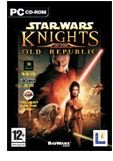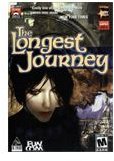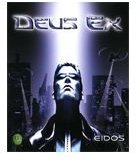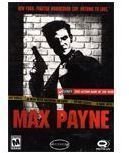Top Five Story Driven PC Games

Smart Games
Modern PC games have upped their graphics and gameplay to unprecedented levels, but at the same time their often sketchy and predictable plots can leave discerning gamers frustrated. Back when a video game was little more than text and some pixels on a screen, story was everything. But now a game can skate by with little more than a basic premise and succeed by merely giving the gamer the ability to shoot some zombies. Even otherwise brilliant RPGs like The Elder Scrolls: Oblivion often have central plotlines that fall short.
But a game with a truly engaging and developed story is ultimately a far more memorable experience, immersing the gamer completely in the plot and characters the same way you might become immersed in a novel or movie. It touches on concepts that mean something and creates characters you can believe in. At the same time, a great storyline doesn’t necessarily mean sacrificing action and excitement. So without further ado here are five PC games, some older and some newer, that are each built around a creative and compelling storyline.
Knights of the Old Republic (KOTOR)
This classic is not only one of the best Star Wars games ever made, but it’s one of the best PC RPGs as well. Though its format is fairly linear, there are enough choices available to make your game a fairly personalized experience. Where this game really shines, however, is in the story department. By choosing an era thousands of years before the Star Wars movies, the designers were able to create fresh characters, locations, and storylines that aren’t constrained by existing material. Whether you’re a Star Wars fan or not, it’s easy to appreciate the originality of Knights of the Old Republic.
There’s a lot of depth and detail to the KOTOR story. Though you travel to several different worlds, events on one world will often impact your experience on the next—resulting in a rewarding sense of continuity. The NPCs (non-player characters) have their own backgrounds and personalities, and their relationships with each other and with you evolve over the course of the game. A lot of the NPCs, main or secondary, are surprisingly engaging and/or funny.
You can choose to play your character as good, evil, or somewhere in between, and your choices and actions help determine this alignment as well as other characters’ reactions to you, which gives you the opportunity for some character development. But the number one reason KOTOR belongs on this list is for the huge and shocking plot twist two-thirds of the way through the game. Believe it or not, it’s even better than “Luke, I am your father.”
Syberia

There are a lot of reasons to be doubtful about a game like this. It’s old, so the graphics look rather clunky and the gameplay isn’t as smooth as it could be. And as an adventure game (like Myst), it’s extremely linear and doesn’t give you the opportunity for many choices. With these drawbacks, what makes or breaks this type of game is story, and Syberia is definitely a winner. From your first glimpse of the strange and unique clockwork town of Valadilène, you’re sure to be completely absorbed in this new world. Every subsequent area and town is designed with beautiful creativity, more than making up for the old-fashioned graphics.
As Kate Walker, a lawyer who comes to Valadilène hoping to close a routine deal and ends up embroiled in a decades-old mystery, you experience multiple storylines. There’s the main plotline, which spans the whole game, and secondary plotlines that span one or two locations. And there’s also Kate’s personal life, played out for you via her cell phone. All these stories are well thought-out and interesting, and tie together in sometimes surprising ways. The whole adventure has such a unique feel to it: mystery combined with adventure played out with a rather dreamlike quality. It’s like participating in a really good movie or novel. And Kate is a wonderful example of a strong female protagonist—something not easy to find in a video game. The only downside is that this game doesn’t conclude the story—you have to check out Syberia II if you want to know how things end up. The second game doesn’t quite live up to the promise of the first, but it’s also well worth playing.
The Longest Journey

Like Syberia, this game is a part of the adventure genre spawned by Myst. And like Syberia, The Longest Journey is old enough that while the scenery is beautifully designed, the graphics are not of the highest quality. However, the opening cut scenes and introduction pull you right into this world that both resembles our own and yet is unique and strange. The psychological, philosophical, and political undercurrents running through the rest of the story make this one of the most thoughtful games ever made.
As April Ryan, a college student living in a sci-fi version of Venice, you’ll explore the age-old concepts of nature vs. technology and magic vs. science in a new and creative way. Bit by bit you start to understand what’s going wrong in April’s world, but there are always just enough unanswered questions to keep you eager to continue. The puzzles are largely well integrated into the story, keeping you involved while still letting you feel like you’ve been transported into a novel. And April, like Kate, is one of the best-realized female heroines in a video game. The well-balanced mix of science fiction, fantasy, adventure, mystery, and humor appeals to a wide audience—just about any gamer who loves a well designed and thought-out game should enjoy this one.
Deus Ex

In a way this game does not fit into a single genre. It’s generally classified as an Action RPG, but a lot of the time it feels more like a first person shooter. There’s constant action and a huge variety of weapons, objectives, and locations. At the same time, this is a much more thought-out and extensive game then the typical shooter or action game. It’s quite long and ambitious, and you’ll constantly find yourself trying to accomplish several things at once. Story-wise, Deus Ex shines largely because of the sheer amount of options available to the player. There’s almost always more than one answer to a problem, more than one possible way to accomplish an objective or mission.
This level of choice, combined with the skills system, allows you to really customize your experience. And the game environment is incredibly detailed—more like a traditional RPG than anything else. For example, you’ll find books and newspapers you can read that aren’t required for completion but add layers to the story. And the NPCs provide an excellent supporting cast, with engaging personalities and opinions about you that change over the course of the game based on your interactions. Overall, the story of Dues Ex is complex and intriguing, and as it progresses you’ll find yourself drawn into a world of political intrigue and survival.
Max Payne

This game is a shooter, plain and simple. And for fans of the story-driven game, the shooter is usually a genre to avoid. Max Payne, however, is a game in a class of its own, involving and exciting enough to be enjoyed by fans of all genres. It’s a dark, film noir-style game with smooth action and excellent cinematography. One of its coolest features it what the game calls “bullet time”—slow motion fight sequences reminiscent of The Matrix that allow for dramatic feats of skill. And the environmental detail is particularly impressive. Every location is carefully and thoroughly designed, and most of what you’ll see can be interacted with.
The story is dark, edgy, and memorable—the kind of thing you won’t soon forget. Much of it is told through sequences of stylistic comic-book pages, adding to the old film noir feel and drawing you into the plot. The main character, Max, is compelling and sympathetic, and you’ll find yourself living inside his head and feeling his pains and successes. Though you don’t have a lot of choices, the storyline more than makes up for that lack with numerous twists and surprises. It’s not a long game, but its complexity (particularly for a shooter) makes it well worth the ride.
